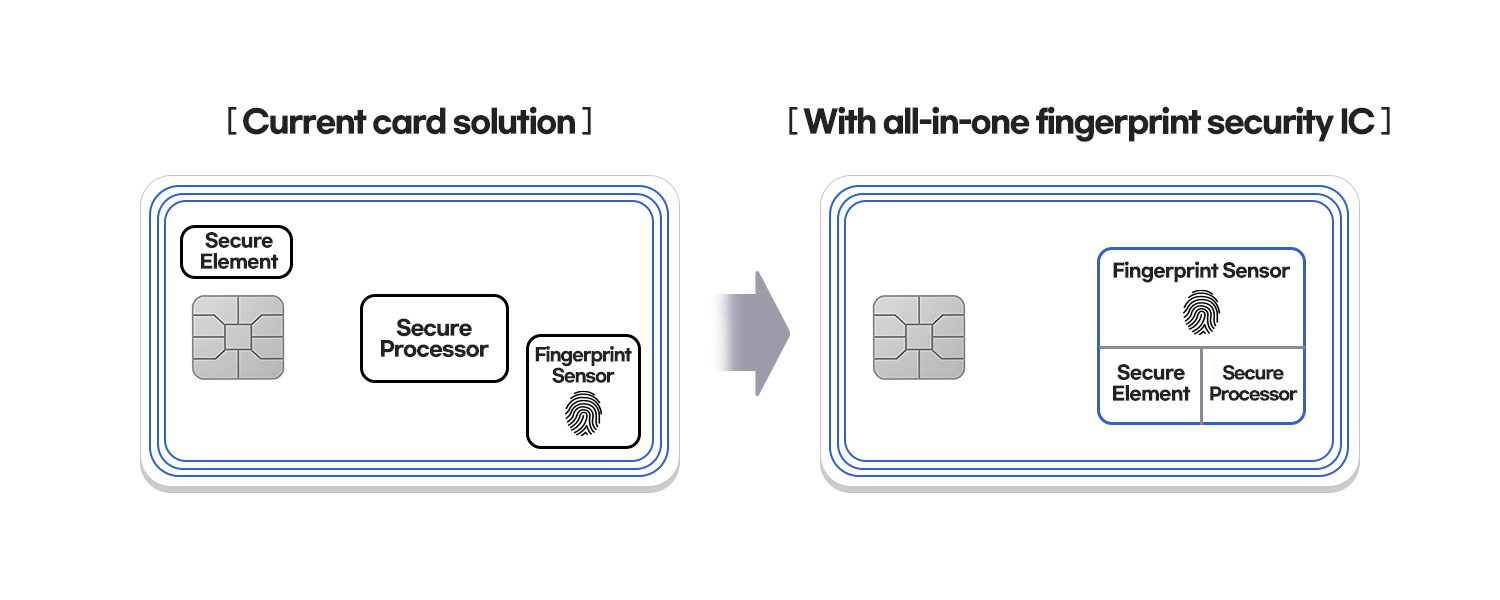Samsung introduces 'All-in-One Fingerprint Security' for payment cards
Samsung's new tech for biometric payment cards to help 'reduce the number of chips required'

Sign up to receive The Snapshot, a free special dispatch from Laptop Mag, in your inbox.
You are now subscribed
Your newsletter sign-up was successful
Samsung wants to make payments faster, safer and eliminate the need for a PIN with its new industry-first all-in-one fingerprint security chip for payment cards. What's more, the security technology may offer a helping hand in settling the global chip shortage.
Samsung Electronics introduced the "S3B512C", which combines a fingerprint security integrated circuit that bundles a fingerprint reader, a tamper-proof Secure Element, and a Secure Processor all into a single chip. Interestingly, Samsung states the S3B512C can help card manufacturers reduce the number of chips required in payment cards.
- Best password managers of 2022
- How to do 2FA right: Getting started with two-factor authentication
- Don't miss today's best daily deals!
“S3B512C combines a fingerprint sensor, Secure Element (SE) and Secure Processor, adding an extra layer of authentication and security in payment cards,” states Kenny Han, Vice President of System LSI Marketing at Samsung Electronics. “The S3B512C is primarily designed for payment cards but can also be used in cards that require highly secured authentications such as student or employee identification, membership or building access.”
While it prevents unauthorized transactions via lost or stolen cards as it verifies the cardholder’s identity, it also comes with anti-spoofing technology to stop people from using other malicious attempts to access data, such as artificial fingerprints.
Samsung wants this to be a widely used method for transactions, which is why the new tech is "EMVCo and Common Criteria Evaluation Assurance Level (CC EAL) 6+ certified," and performs in line with Mastercard’s latest Biometric Evaluation Plan Summary (BEPS).
Biometric authentication for card payments isn't anything new, as many use it on a daily basis to make payments on smartphones via built-in Touch ID or Face ID tech as a form of two-factor authentication. The S3B512C, however, adds an extra layer by storing and authenticating your encrypted data while also analyzing and processing data — all in one integrated circuit.
How soon the all-in-one fingerprint security tech will come into play? Only time will tell. Whether or not it can significantly reduce the number of semiconductors used in payment cards is an interesting solution we hope to see, as some analysts believe we won’t see much relief in chip shortages until 2023.
For those looking for other ways to stay secure in the forever-growing digital age, check out the best reasons to use a VPN service and to save yourself from unwanted spam and phishing emails, find out how to turn off email tracking.
Sign up to receive The Snapshot, a free special dispatch from Laptop Mag, in your inbox.

Darragh Murphy is fascinated by all things bizarre, which usually leads to assorted coverage varying from washing machines designed for AirPods to the mischievous world of cyberattacks. Whether it's connecting Scar from The Lion King to two-factor authentication or turning his love for gadgets into a fabricated rap battle from 8 Mile, he believes there’s always a quirky spin to be made. With a Master’s degree in Magazine Journalism from The University of Sheffield, along with short stints at Kerrang! and Exposed Magazine, Darragh started his career writing about the tech industry at Time Out Dubai and ShortList Dubai, covering everything from the latest iPhone models and Huawei laptops to massive Esports events in the Middle East. Now, he can be found proudly diving into gaming, gadgets, and letting readers know the joys of docking stations for Laptop Mag.

